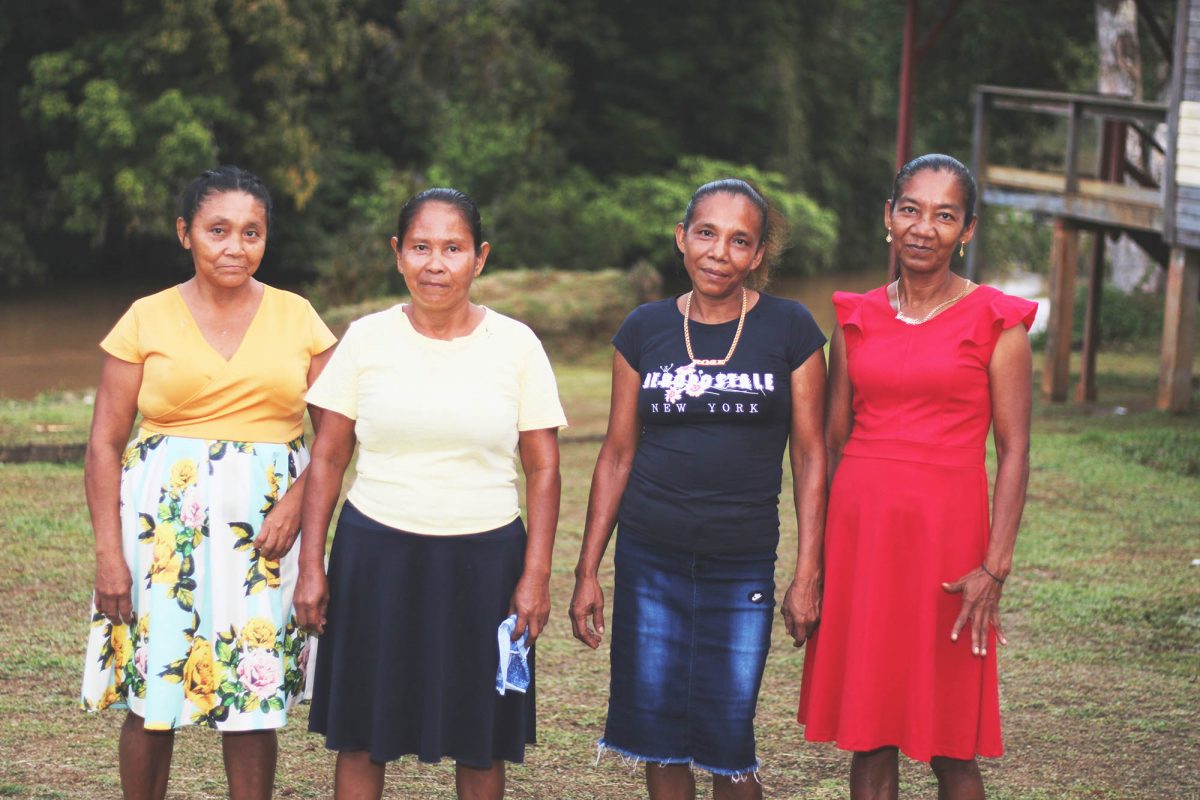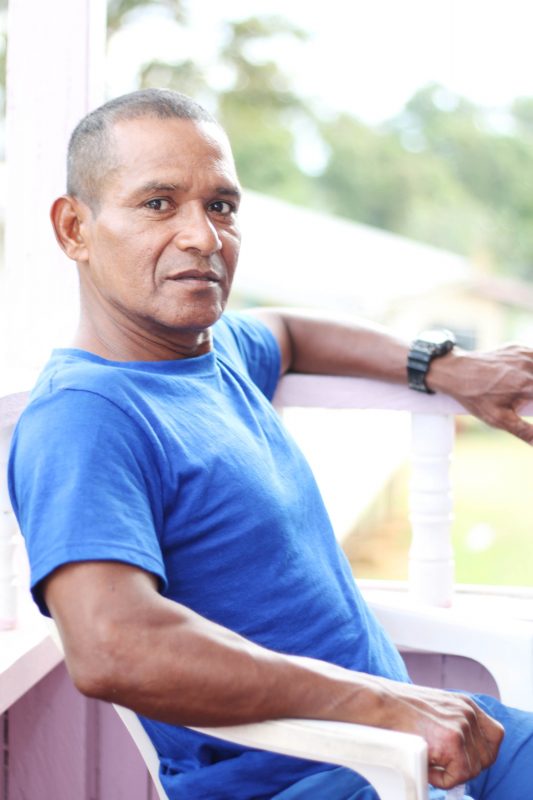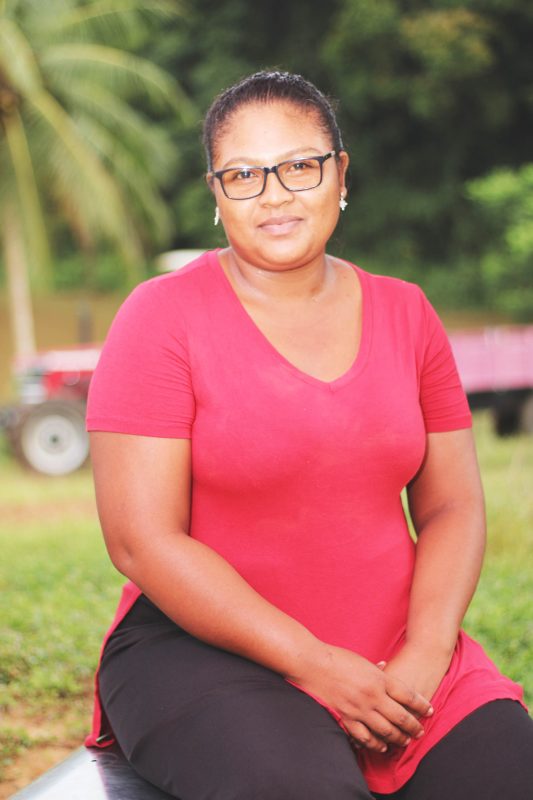Tucked away several miles up the Barama River, Chinese Landing has a population of just about 210 residents and according to the majority, they now have no means of earning any income to support their families.
Because of their community’s remoteness and the cost of transportation to the Moruca sub-district, many of the residents engage in subsistence farming, mining and fishing/hunting to support themselves.
The residents are prohibited from venturing into the mines to earn and the associated economic benefits that trickle down from mining are also being withheld from the village. Though there are over 500 miners operating in the mines, village leaders say they refuse to support community enterprises rather they encourage persons from neighbouring villages to set up shop in the community.
With the continuous rise in the cost of living, the residents are finding it even harder to survive and make ends meet. Nikitta Miller, a businesswoman in the Chinese Landing community said she is the sole breadwinner for her family and finds it challenging to make ends meet.
“The money not flowing and the people not working so whatever they get they try to support their family [with]. It is challenging,” Miller said.
The mother of two explained that the villagers used to mine and that would go back into the village’s economy but now there is no source of income.
“The people do not have any money and whatever little money they get when they go fish and sell a few pounds, all go to taking care of their families. Nobody is buying anything and it is not because they don’t need it but it is because they cannot afford it. It is hard and it is getting harder because [the prices for] things are going and we not getting any money,” she added.
The village’s toshao Orin Fernandes said that the situation remains a concern for the Village Council but there is very little that they can do to alleviate the situation. He explained that the Village Council barely has any funds to help residents offset their challenges which is heartbreaking.
“When we used to work the mines at the back there, our village was in a better place. Let me tell you when we used to work at the back there this village was better because the royalties the residents used to pay to the Council was used to develop the community. We used to help the villagers to build houses, help with food and other developments. Now we cannot do that because we are getting no royalties and the people here are not working,” the toshao lamented.
Miller, who once served as toshao and is also on the Village Council, said that between 2016 and 2019 when the villagers operated the mines the community became self-sufficient.
“When the villagers used to mine in the area, they did a lot of good things. A lot of social benefits. We did not depend on government. The village didn’t even used to collect grants. We were self-sufficient and they [government] used to throw it in we face and say we have plenty money and we don’t want to collect the money but it was not like that. We were independent and trying to do things from our own,” she said.
Battel and shakers
Meanwhile, deputy toshao Vera Millington said that when she first moved to the village over 18 years ago, the residents used to “spin battel” just to earn enough to sustain them for a few days and start over.
“There was no big mining happening here. It was battel and shakers back then and mining used to be done to buy like milk and other things because everybody have their farms and they does go fish and hunt. Now you can’t even fish properly because of the effects of the mining,” she said.
The deputy leader explained that when the villagers started small-scale mining and paid royalties to the Council, the monies were used to make sure to also supplement the income of teachers. She said that the teachers would have to pay more than half of their salaries in transportation fees to uplift the monies. Being cognizant of that, the Village Council used to assist them by purchasing the teachers’ groceries so that they could get by. However, the village can no longer afford to do that, which results in an added strain on teachers.
A father of six, Heamant Subryan said that their breadbasket is being taken away.
“Where we used to go and get we everyday hustle, we can’t go there anymore although we is the villager and although the area is in the centre of the village. We nah get that opportunity anymore. I does deh in and out working on land dredge just to keep your home going.
“For the week, basically for the week working sometimes we barely make a two ounce [of gold] and we does get like $3,000 pon an ounce so it is just like $6,000 per week. It is getting hard now. I now start farming just to maintain the house and I does go fishing and hunting sometimes too,” Subryan said.
He is pleading with the government to allow villagers to go back the mines so they can recover their livelihoods and create a better life for their children. He added that those children heading out of the village for schooling are now at risk since there is very little money to support their education.
Subryan said that while the education is free and the students from the community are staying in the dorms at Moruca, parents still have to meet their other needs.
Meanwhile, mother of eight Patsy Daniels said that they are struggling to make ends meet. Her sentiments were echoed by Jaquelin Fernandes and Yonette Moses. The women said that they cannot take care of their families because of the lack of income.
“We cannot do anything at all because we have no money and we not getting no money. People complaining in town about $300 a pound for sugar. Up here we does got to pay $1,000 for a pound and even that we can’t afford. Sometimes you have nothing to eat and you can’t go to the shop and credit because even them want money,” she said.
The women, too, are pleading with relevant authorities to bring them some economic relief since there are no jobs in the community. However, they claim that they are not too hopeful that would be achieved since very little has been done to remedy the situation so far.
The village’s pastor Evon James said that he moved his family to Chinese Landing about ten years ago and is also calling for a solution to the issue. He is hoping that there will be some economic relief brought to the community.









